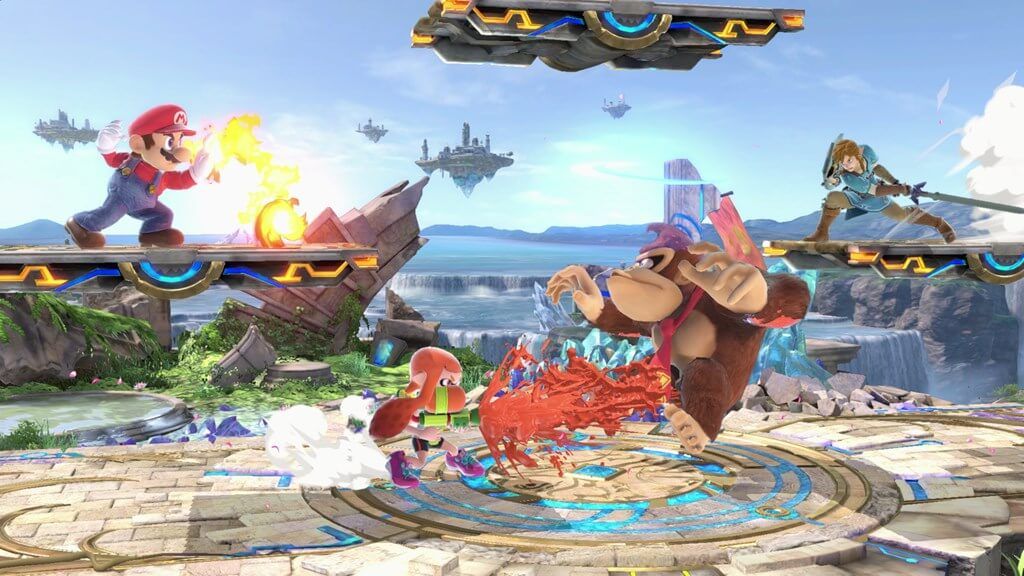Views expressed in opinion columns are the author’s own.
Shortly after I finished my last column of 2018, Nintendo released the latest installment in its hugely popular crossover fighting game franchise, Super Smash Bros. Ultimate. I’ve played more Smash than I care to admit, so I thought I’d take the chance to reflect on the series and my relationship with it. I realize that, in doing so, I’ll be outing myself as a huge dork, but I write columns about moral philosophy for the campus newspaper, so you probably knew that already.
You probably have a few hobbies or talents that you think you’re pretty good at. Maybe you can juggle or whistle. High school me, on the other hand, could always beat his friends in Super Smash Bros. — first in Brawl for the Nintendo Wii, then its sequel, Smash for Wii U. Naturally, I thought this made me pretty good at the game.
There often comes a time, however, where a young hobbyist makes the mistake of Googling his hobby followed by the words “professional,” “world’s best” or — if he’s really masochistic — “5-year-old prodigy,” and finds that the spectrum of talent stretches a lot further than he thought. The jugglers of the world discover Alex Barron, the whistlers discover Geert Chatrou and I spent three hours one night getting utterly destroyed over and over again by a new acquaintance at the game I thought I had mastered.
This was my introduction to the world of competitive Smash: folks who spend hours practicing combos, developing strategies, watching competitive sets on YouTube or Twitch, and above all playing online or at the tournaments held weekly across the country. The competitive scene has exploded in popularity in recent years, with more than 200,000 people tuning in on Twitch to watch the finals of one of the premier tournaments of 2018.
After the initial amazement wears off, the knowledge that it’s possible to be even better at something you thought you’d already figured out can be either discouraging or inspiring. For me, it was the latter, and I vowed that night to truly “get good” at Smash. Three years have passed since then, and I’m not winning any tournaments, but if I’m at a party and someone busts out the Wii U or Switch, there’s a pretty good chance I can wax everyone there.
Like plenty of other overachieving millennials, I’m afflicted by the constant pressure to be productive, and to spend my time optimally. It’s not as bad for me as for some, but I can’t play most video games for more than half an hour or so without the nagging feeling that I should be doing something to further myself instead. Yet for some reason, Smash is exempt from that; I can easily sit down with my friends or brother and play for hours on end.
I’ve spent some time trying to figure out what it is about Smash that’s made me fall in love with it. Certainly one of its most appealing aspects is how many different niches it occupies: The game can be played in formats ranging from the ultra-restrictive tournament rulesets that maximally reward the skill of the players to eight-person item-filled chaos where a seasoned competitor scarcely has an advantage over an absolute beginner. The process of learning the moves and combos for each character provides all the satisfaction of improving at a craft, while playing against other people necessitates creative thinking and mental fortitude.
Perhaps what’s most unique about Smash is the blend of all these elements it manages to strike. Even at its most intensely competitive, the game is patently absurd — it can feature Link from the The Legend of Zelda fighting the trainer from the Wii Fit series — which helps keeps things in perspective when competition gets a bit too serious. It’s technical enough to require years of practice to master, yet simple enough that a newcomer can sit down and learn the basics in a few minutes; deep enough to allow for rewarding solo play, yet at its most fun when enjoyed with friends.
Perhaps all the hours I’ve put into Smash have been a waste, as my mom suspects. Even I’m a bit befuddled as to how I can occasionally sit down and play a video game for six hours without feeling like I’ve failed myself, my family and my species. Yet I can’t help but feel that the skills I’ve honed are no more and no less intrinsically valuable than juggling, or whistling, or other things we tend to take for granted as being worth time and energy. At least, that’s my take. If you disagree, grab a controller and we can settle it on Final Destination.
Joey Marcellino is a junior jazz saxophone, physics and philosophy major. He can be reached at fmarcel1@terpmail.umd.edu.



